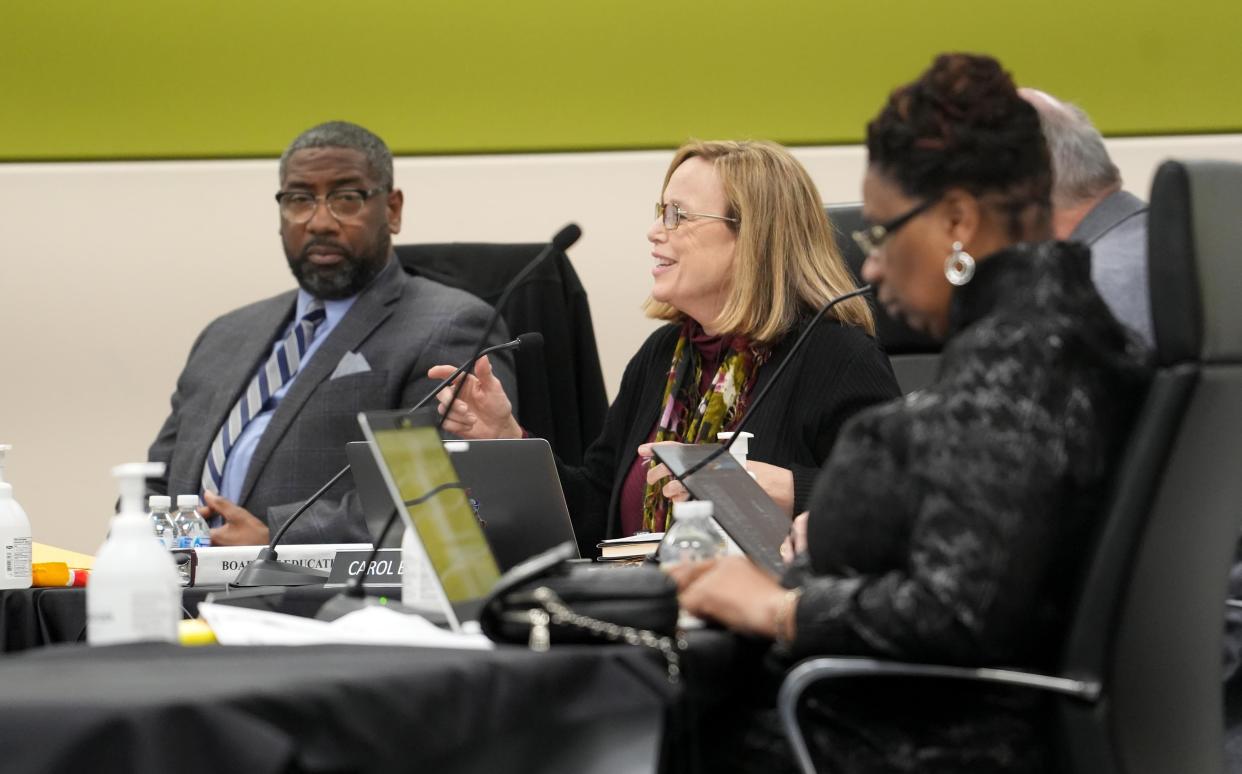Strings pulled in closed-door, backroom meetings why incumbent not running for school board

Vladimir Kogan is a professor of political science at the Ohio State University. His research focuses on state and local politics and policy.
When Columbus voters go to the polls in November to elect their local school board, they’ll see a couple of names missing from the ballot.
One incumbent, Carol Beckerle, withdrew from the race after losing the Franklin County Democratic Party’s endorsement at the behest of the district’s teacher union.
Sadly, this is par for the course in Ohio’s largest school district — and helps illustrate how adult interests, rather than student needs, shape the district’s governance.
More: 'No child belongs in a cage.' Conditions at juvenile prisons make extreme violence inevitable

Two years ago, the district’s teacher union, the Columbus Education Association, did the same with another school board incumbent, James Ragland. Working behind the scenes, CEA ensured that Ragland also lost the party’s endorsement. He decided to stay on the ballot anyway, coming in a distant fifth with less than 8 percent of the vote.
More: Columbus City school board: Meet the candidates for four seats on the Nov. 7 ballot
More: Nearly $100 million Columbus City Schools levy campaign: 'It's about keeping our lights on'
Ragland’s apparent offense was supporting school choice options and also calling out outrageous rates of teacher absenteeism in Columbus on a Dispatch podcast.
Back in 2007, the same thing happened to yet another incumbent, Stephanie Groce. At the time, Groce had already secured the local Democratic Party’s endorsement. But, just weeks before the election, the party suddenly withdrew its support after Groce angered the CEA by suggesting that teachers salary increases should be linked to reversing the district’s sharp enrollment losses (which have only continued since then).

Groce went on to win the election anyway, but much has changed in Columbus over the past 16 years. Back in 2007, the Dispatch — still owned by the Wolfe family — wrote a blistering editorial, calling the move “reprehensible.”
“The biggest loser was the county party and its top officeholders, who had a chance to demonstrate leadership by standing on principle for an independent-minded and highly qualified candidate. Instead, those leaders caved cravenly.”
In 2021, the Dispatch didn’t cover the Columbus school board election or Ragland’s defenestration until election day.
More: 'LaRose is giving the finger to Ohioans.' He's intentionally misleading you on abortion
Letters: Shame on Columbus school board for asking for more money, showing faces
Over the same time period, Franklin County has become a Democratic stronghold. The key to winning office is appearing on the Democratic Party’s “sample ballot,” empowering the interest groups who serve on the party’s central committee during the closed-door, backroom endorsement process.
Losing the party’s endorsement has thus become electoral death sentence.
The results are predictable, with the district much more focused on adult employment concerns, rather than student learning outcomes.
In 2018, another Columbus school board member, Mary Jo Hudson, resigned in frustration, arguing the district had become an employment agency.
The school board, she wrote in her resignation letter, “has unnecessary ties to the employment of each and every district employee [and] cannot be expected to succeed or even begin to climb this growing hill of shifting sand.”
Just a few months ago, the school board forced out the district’s independent auditor — who exposed the district’s 2012 attendance data scrubbing — for offending the school custodians by asking questions about the condition of school buildings on an employee survey.
As AJ Crabill, a school board governance coach who has been working with the Columbus board in recent years, likes to say, “Student outcomes don’t change until adult behaviors change.”
Sadly, recent developments suggest that Columbus students will be waiting a long time.
Vladimir Kogan is a professor of political science at the Ohio State University. His research focuses on state and local politics and policy.
This article originally appeared on The Columbus Dispatch: Incumbent's withdrawal from schools race speaks to who really runs Columbus

